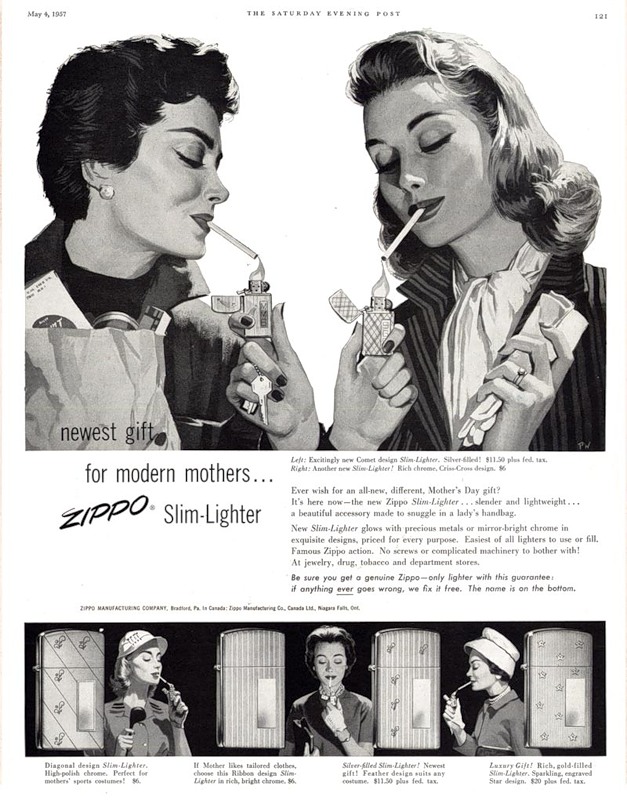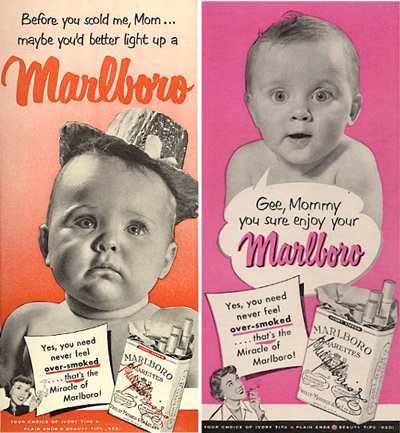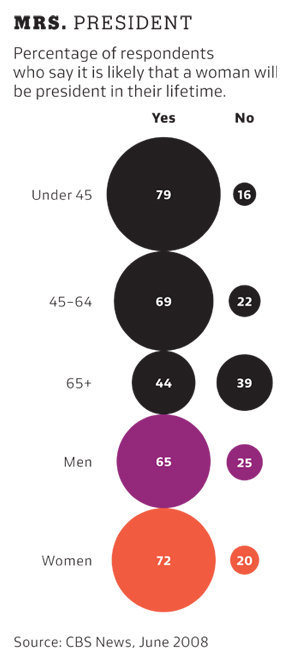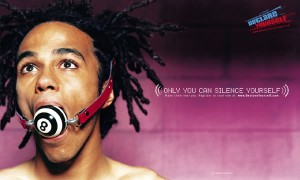I recently heard that Marlboros were originally marketed to women. Amy L. sent in these examples from the 1950s (found here). She writes:
Notice how “in one picture the baby actually asks mom to have a cigarette instead of scolding him. It plays up the women-as-hysterical stereotype and also shows changing expectations about good motherhood.”
NEW! Vintage Ads featured this 1957 ad suggesting that a Zippo Slim-Lighter is the perfect gift for a modern mother:








